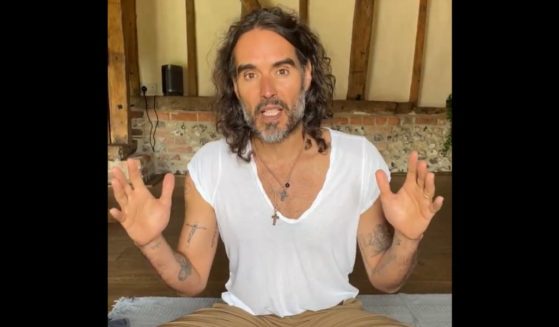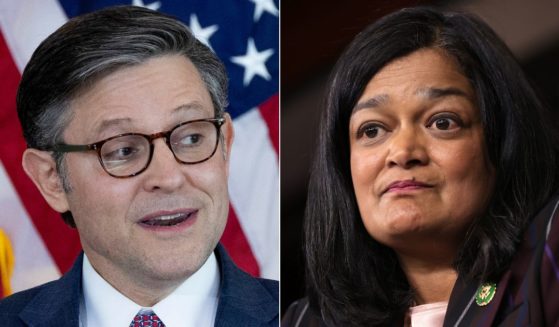Bob Ehrlich: Beware the Experts' Coronavirus Predictions
Guy walks in to see his doctor. The doctor tells him he has six months to live. Patient responds that he can’t pay the bill. Doctor gives him another six months! – Henny Youngman
This oldie but goodie from the “master of the one-liners” comes to mind as we attempt to digest the constantly fluctuating epidemiological charts that track the coronavirus. The wide range of projections — often inaccurate — reminds us that the business of predicting future events is always subject to human error.
In laymen’s terms: science in, science out; garbage in, garbage out.
This, of course, is not to argue that scientific models are useless — far from it. But accurate forecasting is a function of vetted data, not opportunistic forecasting. Unfortunately, such opportunism is difficult to escape, as models are sometimes negligently used to support apocalyptic political narratives, especially where the narrative concerns a progressive sweet spot.
Recall, for example, former Vice President Al Gore’s 2006 prediction that unless “drastic measures” to reduce greenhouse gases were taken, the world would reach a “point of no return” in a mere ten years, or his 2009 warning that “models suggest … that there is a 75 percent chance that the entire north polar ice cap, during the summer months, could be completely ice-free within five to seven years.”
In a similar vein, Rep. Alexandria Ocasio-Cortez has more recently (2019) warned that Miami will be gone “in a few years,” and even, with awe-inspiring specificity, claimed that “the world is going to end in twelve years if we don’t address climate change.”
And then there was the U.N. environmental program director’s 1989 claim that the world had a clear window to solve the greenhouse effect before it reached a point of no return, and that if rising sea levels were not checked by 2000, entire countries would wash away.
Note that a quick Google search reveals numerous dire global cooling predictions from the 1960s, ’70s and ’80s. What to think?
Climate change is real and ongoing. Today, the world has entered a warming phase. It’s a scientific fact. But questions concerning the speed of temperature changes and the relative role of mankind’s contribution remains subject to further exploration.
Yet balanced debate on these last points is difficult to find. And it does not take a scientist to figure out what makes for such strident true believers.
Enter the always-effective accelerant: ideology. Here, data points can be made to fit a political agenda, contrary science notwithstanding.
The fact that the United States leads the world in the reduction of CO2 emissions is accordingly too “inconvenient” (excuse the pun), too counterintuitive, for the narrative pushers. They would silence climate contrarians.
Ideological influence is bad enough, but the left vs. right debate proceeds from bad to worse when personal animus is added to the mix. And no politician of recent vintage produces as much animus in the loyal opposition as Donald J. Trump. He triggers very smart people to promote apocalyptic endgames.
A quick glance at the intellectual temper tantrums registered in the wake of Nov. 8, 2016 is revealing.
Witness the brilliant but judgment-challenged economics professor and New York Times columnist Paul Krugman: “If the question is when markets will recover, a first-pass answer is never. … [W]e are very probably looking at a global recession, with no end in sight.”
Not to be outdone, the left-wing Brookings Institution predicted a market crash of ten to fifteen percent while an opinion column in the trade journal Market Watch predicted both a stock market crash and a worldwide recession. Many similar predictions followed suit.
The end of American prosperity — indeed the world — was now supposedly at hand. The American economy will be toast. “Just believe us,” said the really smart people.
I could fill my next fifty columns with similar anecdotes (Oprah’s 1987 opining that 20 percent of the heterosexual world would fall victim to AIDS within the next three years comes to mind).
But you get the point. Philosophically driven opinion-makers use fear of the unknown — and often bogus models — to drive their agendas. To boot: Today’s doomsdayers benefit from vastly shortened public attention spans in this era of social media.
So what is one supposed to think and do when confronted with truly scary scenarios pushed by the political intelligentsia?
Here’s an idea: Why not step back, examine other informed opinions, maybe even buy some more time like that patient in Mr. Youngman’s joke?
Above all, do not let the opposition manipulate the evidence and get away with their erroneous predictions. And do not be silenced.
That’s one surefire way free people lose their rights.
The views expressed in this opinion article are those of their author and are not necessarily either shared or endorsed by the owners of this website. If you are interested in contributing an Op-Ed to The Western Journal, you can learn about our submission guidelines and process here.
Truth and Accuracy
We are committed to truth and accuracy in all of our journalism. Read our editorial standards.












